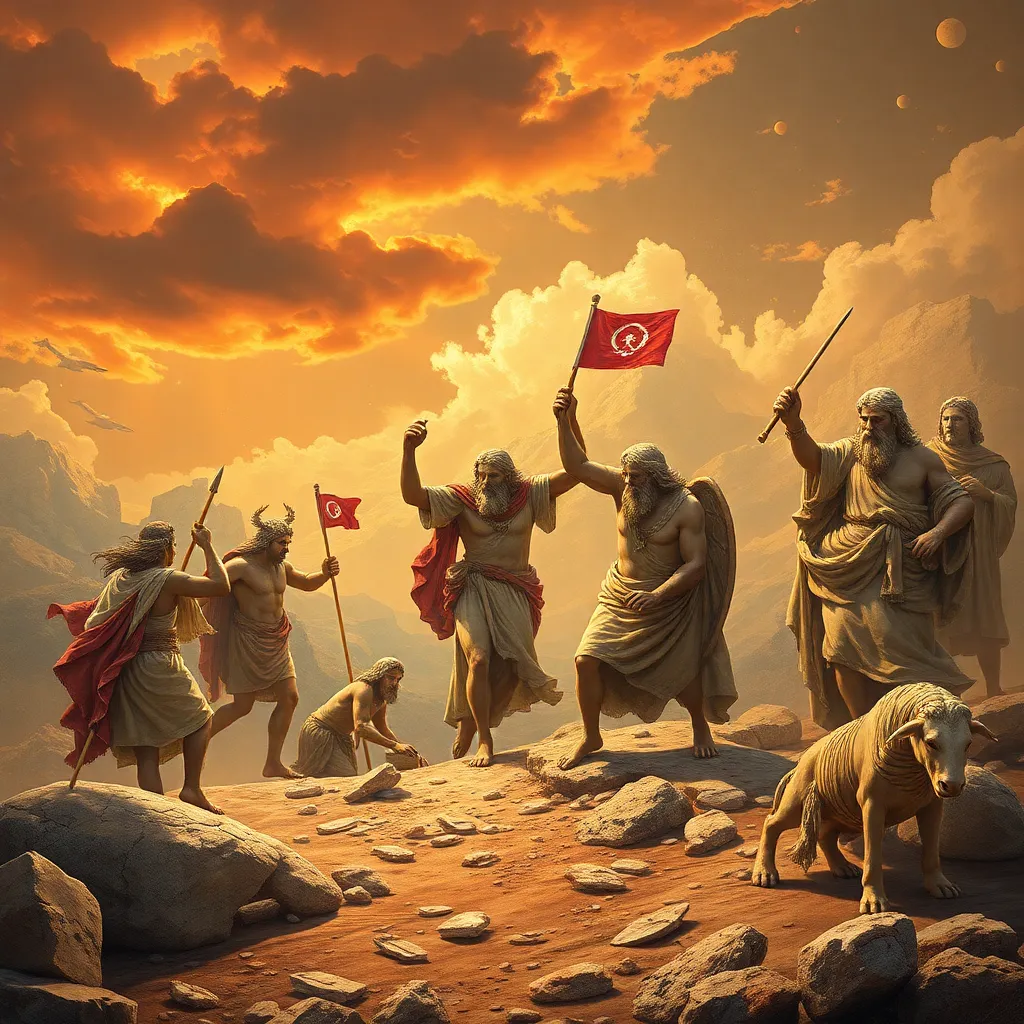The Iliad’s Representation of the Human Condition
I. Introduction
“The Iliad,” attributed to the ancient Greek poet Homer, stands as one of the most significant epic poems in Western literature. Composed in the 8th century BCE, it narrates the events of the Trojan War, focusing primarily on the wrath of Achilles, one of the greatest warriors of Greek mythology.
Exploring the human condition through literature offers insights into the complexities of our emotions, relationships, and existential concerns. “The Iliad” provides a vivid tapestry of human experiences that remain relevant across millennia. It delves into themes such as heroism, fate, honor, the impact of war, and the quest for meaning, enriching our understanding of humanity.
Thesis statement: “The Iliad” offers profound insights into the complexities of human emotions, relationships, and mortality.
II. The Nature of Heroism
In ancient Greek culture, heroism is often defined by bravery, strength, and the pursuit of personal glory, often at great personal risk. Heroes were celebrated not only for their physical prowess but also for their moral virtues and adherence to a code of honor.
Achilles embodies the archetype of the tragic hero. His strength and invulnerability, gifted to him through divine lineage, contrast with his profound vulnerability—his emotions and relationships. Achilles’ journey reflects the internal conflict between seeking personal glory and fulfilling communal responsibilities.
- Personal Glory: The pursuit of kleos, or glory, drives many of Achilles’ actions.
- Communal Responsibility: Achilles’ withdrawal from battle results in dire consequences for his comrades.
III. The Role of Fate and Free Will
Fate plays a central role in “The Iliad,” with characters often struggling against their predetermined destinies. The Greeks believed that the Fates, three goddesses, controlled the destinies of mortals, making their struggles seem futile against cosmic forces.
Characters like Achilles grapple with their fates, questioning the extent of their free will in shaping their lives. This tension between divine intervention and human agency raises profound questions about autonomy and predestination.
- Struggles Against Destiny: Achilles wrestles with his fate of early death versus a long, obscure life.
- Divine Intervention: The gods frequently intervene in human affairs, altering the course of events.
IV. The Complexity of Honor and Shame
Honor, or timê, is a central theme in Greek society, shaping the characters’ motivations and actions throughout “The Iliad.” The pursuit of honor often dictates the decisions of warriors, driving them to heroic feats or, conversely, to catastrophic failures.
Honor motivates characters’ actions, as seen in Achilles’ initial withdrawal from battle due to a perceived slight to his honor by Agamemnon. Conversely, shame, or aidos, serves as a powerful deterrent, compelling characters to act in ways that restore their honor or the honor of their families.
- Honor’s Motivation: Characters like Hector fight valiantly to protect their honor and that of their families.
- Consequences of Shame: The loss of honor can lead to devastating personal and communal repercussions.
V. The Impact of War on Humanity
The brutality and chaos of battle depicted in “The Iliad” reflect the harsh realities of warfare. The poem presents graphic scenes of death and destruction, emphasizing the physical and emotional toll of conflict on both soldiers and civilians.
The psychological effects of war are profoundly illustrated through the experiences of characters like Achilles and Hector. The theme of loss and grief permeates the narrative, as characters confront the death of loved ones and the futility of their struggles.
- Brutality of Battle: Vivid descriptions of combat highlight the horrors of war.
- Psychological Effects: Characters experience trauma and despair as they navigate the realities of conflict.
VI. Relationships and Community
Friendship and loyalty are central to the narrative, epitomized in the bond between Achilles and Patroclus. Their relationship illustrates how deep connections can provide solace amidst chaos and serve as a driving force for action.
The dynamics of family and kinship are also explored, as characters navigate their responsibilities to their families while engaged in the larger context of war. The sense of community and collective identity shapes individual experiences, underscoring the interconnectedness of human lives.
- Friendship: The bond between Achilles and Patroclus exemplifies loyalty and emotional depth.
- Family Dynamics: Characters often face dilemmas that pit familial loyalty against broader societal duties.
VII. Mortality and the Search for Meaning
The inevitability of death is a central theme in “The Iliad.” Characters frequently confront their mortality, reflecting on the transient nature of life and the legacies they leave behind. This awareness shapes their actions and choices throughout the narrative.
Characters such as Hector and Achilles grapple with their legacies, pondering the meaning of their lives in the face of impending death. The quest for meaning becomes a driving force, as they seek to leave behind a lasting impact.
- Inevitability of Death: Mortality looms over every character, influencing their decisions and relationships.
- Legacy and Meaning: Characters reflect on the significance of their actions in the context of their eventual deaths.
VIII. Conclusion
In summary, “The Iliad” provides profound insights into the human condition, exploring themes of heroism, fate, honor, the impact of war, relationships, and mortality. The complexities of these themes resonate deeply, offering readers a lens through which to examine their own lives and experiences.
The lasting relevance of “The Iliad” in contemporary discussions of humanity underscores its timeless exploration of the human experience. As modern readers engage with the text, they find reflections of their struggles, emotions, and the search for meaning in a chaotic world.
In conclusion, “The Iliad” continues to resonate with us today, serving as a powerful reminder of the enduring complexities of the human condition.




